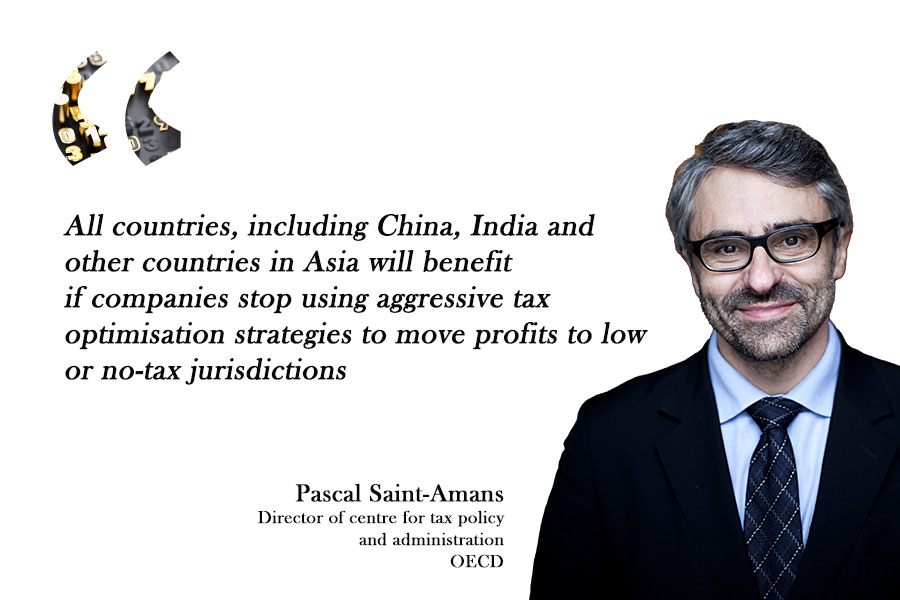Big tech companies have been minting tax-free dollars for years, but that is set to change. The Organisation for Economic Co-operation and Development (OECD) announced on 8 October that 136 countries had reached an agreement on a sweeping overhaul of the international tax system that will impose a 15% minimum tax rate on multinational enterprises. Freny Patel asked the director of the OECD centre for tax policy and administration in Paris, Pascal Saint-Amans, to explain the real deal for Asia
Asia Business Law Journal: Do Asian countries including China and India stand to benefit from the proposed global tax regime?
Pascal Saint-Amans: We believe all countries will benefit from the recently reached multilateral agreement for bringing international taxation rules into the 21st century. We have been facing a global challenge for some time – the international tax rules were no longer working. This new agreement offers a global solution, bringing together more than 130 countries including China, India and other countries across Asia. It reinforces the international tax system and reduces the risk that countries take unilateral measures that provoke trade tensions. A better functioning international tax system is in everyone’s interest.
More specifically, as concerns countries in Asia that you are asking about, this agreement is a very big deal for them – and for countries worldwide – as it will allow them to tax part of the profits that multinationals make in their markets, even when those multinationals have no physical presence. That has been the existing situation for a very long time – a multinational needed have what tax experts call a “permanent establishment” for countries to have taxing rights – but Pillar One of this new agreement recognises that the economy has changed, that multinationals can operate in a jurisdiction without a physical presence, and so it offers new taxing rights to countries worldwide. This is the first fundamental reallocation of taxing rights in 100 years.
Accompanying that is a new minimum global corporate tax embedded in Pillar Two of this agreement. This will put a floor on tax competition. This global minimum tax will go a long way towards putting an end to the use of tax havens by companies to reduce their tax liabilities. All countries, including China, India and other countries in Asia will benefit if companies stop using aggressive tax optimisation strategies to move profits to low or no-tax jurisdictions. There will be more tax paid where activity takes place.
ABLJ: India, for instance, has adopted an equalisation levy on digital transactions of 2%. Would the new proposed tax regime adequately compensate revenues, as India would have to withdraw the levy?
Saint-Amans:Measures like the equalisation levy in India are aimed at collecting tax from the major digital companies that are not subject to tax in the places they earn their income, according to the existing rules. The rationale for these taxes disappears with the new rules, and their withdrawal is a key element of the agreement. The timing of the removal of these taxes will need to be co-ordinated both between countries, and with regard to the implementation of these new rules. The new rules should result in significant revenues for countries, including India.
One additional consideration is that measures like the equalisation levy lead to trade tensions. You see this when a country like the US declares its intention to take retaliatory measures against countries that have introduced taxes on digital services, which they consider discriminatory. Removing these measures in favour of a multilaterally agreed global solution will bring much needed certainty and stability to the international tax system, and create a more favourable climate for trade.
You must be a
subscribersubscribersubscribersubscriber
to read this content, please
subscribesubscribesubscribesubscribe
today.
For group subscribers, please click here to access.
Interested in group subscription? Please contact us.



























